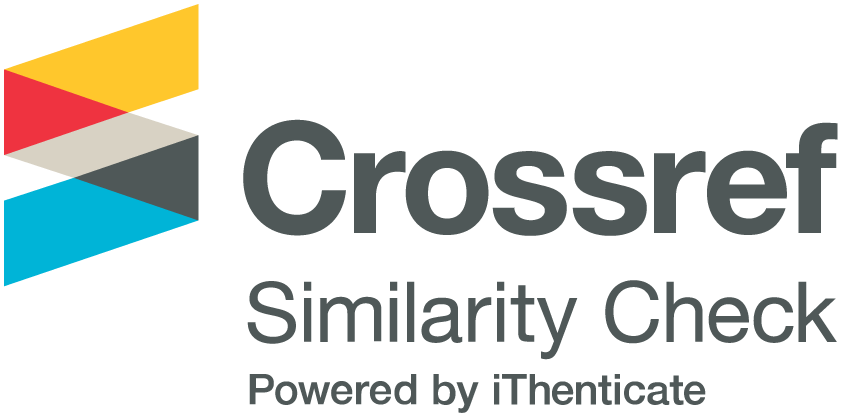Evaluation of a Positive Psychology Program for the Promotion of Well-Being and Emotional Health in Rural Elderly People
DOI:
https://doi.org/10.54790/rccs.65Keywords:
emotional well-being, healthy aging, elderly people, intervention program, Positive psychology, perceived healthAbstract
Population aging is one of the challenges of modern societies. In particular, older people living in rural areas may face additional barriers to access mental health resources and services, which increases the risk of social isolation, depression, and other emotional health problems. The aim of the study is to evaluate an intervention for the improvement of well-being and emotional health in older people. A quasi-experimental investigation was conducted with pre-intervention and post-intervention measures. The sample consists of 24 people aged 65 to 85 years. The program consisted of a total of six sessions. The efficacy of the intervention program was evaluated. The results indicate that the experimental group significantly increased their scores with respect to baseline, and in relation to the control group. It could be suggested that the intervention program based on positive psychology promotes an increase in emotional well-being, which favors healthy aging.
Downloads
Metrics
References
Amigo Vázquez, I. (2020). Manual de psicología de la salud (4ª ed.). Ediciones Pirámide.
Andrews, F. M. y Whithey, S. (1976). Social Indicators of Well Being. American ́s Perceptions of Life Quality. New York, NY: Plenum Press. https://doi.org/10.1007/978-1-4684-2253-5 DOI: https://doi.org/10.1007/978-1-4684-2253-5
Cañero, M., Mónaco, E. y Montoya, I. (2019). La Inteligencia Emocional y la Empatía como Factores Predictores del Bienestar Subjetivo en Estudiantes Universitarios. European Journal of Investigation in Health, Psychology and Education, 9, 19-29. https://doi.org/10.30552/ejihpe.v9i1.313 DOI: https://doi.org/10.30552/ejihpe.v9i1.313
Carstensen, L. (1993). Motivation for social contact across the life span: a Theory of Socioemotional Selectivity. En J. E. Jacobs (Ed.), Symposium on motivation 1992 (vol. 40, pp. 209-254). Lincoln: University of Nebraska Press.
Casullo, M. M. (2006). El capital psíquico: Aportes de la psicología positiva. Psicodebate. Psicología, cultura y sociedad, (6), 59-72. https://doi.org/10.18682/pd.v6i0.441 DOI: https://doi.org/10.18682/pd.v6i0.441
Cassullo, G. L., Caballero, R. Y., Favara, J. e Iriarte, M. L. (2019). Valoración de un programa para adultos mayores enfocado desde la psicología ambiental y la psicología positiva. XI Congreso Internacional de Investigación y Práctica Profesional en Psicología. XXVI Jornadas de Investigación. XV Encuentro de Investigadores en Psicología del MERCOSUR. I Encuentro de Investigación de Terapia Ocupacional. I Encuentro de Musicoterapia. Facultad de Psicología-Universidad de Buenos Aires.
Danis, M. y Gostin, L. O. (2019). Health and responsibility. JAMA, 321(17), 1651-1652. https://doi.org/10.1001/jama.2018.15312 DOI: https://doi.org/10.1001/jama.2018.15312
Dean, M., Grunert, K., Raats, M., Nielsen, N. y Lumbers, M. (2008). The impact of personal resources and their goal relevance on satisfaction with food-related life among the elderly. Appetite, 50, 308-315. https://doi.org/10.1016/j.appet.2007.08.007 DOI: https://doi.org/10.1016/j.appet.2007.08.007
Depp, C. A., Vahia, I. V. y Jeste, D. V. (2012). Successful aging. En S. K. Whitbourne y M. J. Sliwinski (Eds.), The Wiley-Blackwell handbook of adulthood and aging (pp. 459-476). Wiley Blackwell. https://doi.org/10.1002/9781118392966.ch23 DOI: https://doi.org/10.1002/9781118392966.ch23
Diener, E., Sandvik, E. y Larsen, R. J. (1985). Age and Sex Effects for Emotional Intensity. Developmental Psychology, 21(3), 542-546. https://doi.org/10.1037/0012-1649.21.3.542 DOI: https://doi.org/10.1037//0012-1649.21.3.542
Diener, E., Wirtz, D., Tov, W., Kim-Prieto, C., Choi, D., Oishi, S. y Biswas-Diener, R. (2010). New Well-being Measures: Short Scales to Assess Flourishing and Positive and Negative Feelings. Social Indicators Research, 97(2), 143-156. https://doi.org/10.1007/s11205-009-9493-y DOI: https://doi.org/10.1007/s11205-009-9493-y
Engel, G. L. (1977). The need for a new medical model: a challenge for biomedicine. Science, 196(4286), 129-136. https://doi.org/10.1126/science.847460 DOI: https://doi.org/10.1126/science.847460
Fernández-Ballesteros, R., Caprara, M. G. y García, L. F. (2004). Vivir con vitalidad-M®: Un programa europeo multimedia. Psychosocial Intervention, 13(1), 63-84.
Galea, S., Merchant, R. M. y Lurie, N. (2018). The mental health consequences of COVID-19 and physical distancing: The need for prevention and early intervention. JAMA Internal Medicine, 178(8), 1022-1023.
Gerencia de Servicios Sociales de la Junta de Castilla y león (2018). Índice de Envejecimiento Activo en Castilla y León.
Grunert, K., Dean, D., Raats, M., Nielsen, N. y Lumbers, M. (2007). A measure of satisfaction with food-related life. Appetite, 49(2), 486-493. https://doi.org/10.1016/j.appet.2007.03.010 DOI: https://doi.org/10.1016/j.appet.2007.03.010
Instituto Nacional de Estadística (2021). Indicadores de Estructura de la Población. Resultados por comunidades autónomas. Índice de Envejecimiento por comunidad autónoma. https://www.ine.es/jaxiT3/Tabla.htm?t=1452
Jiménez, M. G., Izal, M. y Montorio, I. (2016). Programa para la mejora del bienestar de las personas mayores. Estudio piloto basado en la psicología positiva. Suma Psicológica, 23, 51-59. http://dx.doi.org/10.1016/j.sumpsi.2016.03.001 DOI: https://doi.org/10.1016/j.sumpsi.2016.03.001
Lombardo, E. (2013). Psicología positiva y psicología de la vejez. Intersecciones teóricas. Psicodebate, 13, 47-60. https://doi.org/10.18682/pd.v13i0.361 DOI: https://doi.org/10.18682/pd.v13i0.361
Mohd, S., Azman, A., Sulaiman, J. y Baba, I. (2010). Establishing the well-being of the rural-urban elderly population: A case study of Indonesia. The Hong Kong Journal of Social Work, 44(2), 105-120. https://doi.org/10.1142/S0219246210000124 DOI: https://doi.org/10.1142/S0219246210000124
Ortiz Arriagada, J. B. y Castro Salas, M. (2009). Bienestar psicológico de los adultos mayores, su relación con la autoestima y la autoeficacia: Contribución de enfermería. Ciencia y enfermería, 15(1), 25-31. https://doi.org/10.4067/S0717-95532009000100004 DOI: https://doi.org/10.4067/S0717-95532009000100004
Pérez Díaz, J., Ramino Fariñas, D., Aceituno Nieto, P., Muñoz Díaz, C., Buneo López, C., Ruiz-Santacruz, J. S., Fernández Morales, I., Castillo Belmonte, A. B., de las Obras-Loscertales Sampériz, J. y Villuendas Hijosa, B. (2022). Un perfil de las personas mayores en España, 2022. Indicadores estadísticos básicos. Informes Envejecimiento en red, 29, Madrid. Disponible en: http://envejecimiento.csic.es/documentos/documentos/enred-indicadoresbasicos2022.pdf
Pinto, A. D., Henry, D. y Gogovor, A. (2021). Personal responsibility and health system sustainability. Health Affairs, 40(3), 445-450.
Ruch, W., Proyer, R. T. y Weber, M. (2010). Humor as a character strength among the elderly: Empirical findings on age-related changes and its contribution to satisfaction with life. Zeitschrift für Gerontologie und Geriatrie, 43(1), 13-18. https://doi.org/10.1007/s00391-009-0090-0 DOI: https://doi.org/10.1007/s00391-009-0090-0
Salces-Cubero, I. M., Ramírez-Fernández, E. y Ortega Martínez, A. R. (2018). Strengths in older adults: Differential effect of savoring, gratitude and optimism on well-being. Aging & Mental Health. https://doi.org/10.1080/ 13607863.2018.1471585
Scheibe, S. y Carstensen, L. L. (2010). Emotional aging: Recent findings and future trends. The Journals of Gerontology: Series B, 65(2), 135-144. https://doi.org/10.1093/geronb/gbp132 DOI: https://doi.org/10.1093/geronb/gbp132
Schnettler, B., Denegri, M., Miranda, H., Sepúlveda, J., Mora, M. y Lobos, G. (2014). Satisfaction with life and with food-related life in central Chile. Psicothema, 26, 200-206. doi: 10.7334/psicothema2013.13
Seligman, M. (2003). La Auténtica Felicidad (1ª ed.). Madrid: Vergara.
Vázquez, C. y Hervás, G. (2009). La ciencia del bienestar: Fundamentos de una Psicología Positiva. Madrid: Alianza Editorial.
Vázquez, C., Hervás, G. y Ho, S. (2006). Intervenciones clínicas basadas en la psicología positiva: fundamentos y aplicaciones. Psicología conductual, 14(3), 401-432.
Vázquez, C., Hervás, G., Rahona, J. J. y Gómez, D. (2009). Bienestar psicológico y salud: Aportaciones desde la Psicología Positiva. Anuario de Psicologia Clinica y de la Salud/Annuary of Clinical and Health Psychology, 5, 15-28.
Wikler, D. (2019). Individual responsibility for health promotion: An ethical analysis. Public Health Ethics, 12(3), 284-292.
Downloads
Published
How to Cite
Issue
Section
License
Copyright (c) 2024 Susana Pérez-Herrero, Jesús González-Moreno, Francisco Rivera Rufete, María Cantero García

This work is licensed under a Creative Commons Attribution-NonCommercial-ShareAlike 4.0 International License.










